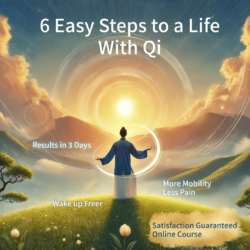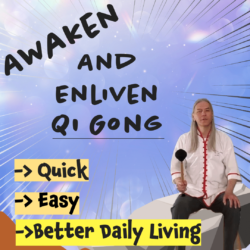What Is Positivity?
Positivity is more than just feeling happy. It’s a way of thinking that helps you focus on opportunities instead of obstacles. It doesn’t mean ignoring life’s problems, but rather choosing to approach challenges with hope, resilience, and an expectation of good outcomes.
Scientists often study optimism, a key part of positivity. Optimism is the belief that good things will happen and that difficulties can be overcome. Research shows that optimism and other positive emotions aren’t just good for your mental state—they actually improve physical health.
Let’s explore the science behind how positivity affects your body and mind.
1. Positivity and Heart Health
Heart disease is the leading cause of death worldwide, but research suggests that a positive outlook may help protect against it.
A major study in JAMA Network Open analyzed data from over 200,000 people and found that those with higher levels of optimism had a 35% lower risk of cardiovascular disease compared to pessimists.
A separate study from the American Journal of Cardiology found that heart attack patients who had a positive attitude recovered faster and had a lower risk of future heart problems.
How Positivity Helps the Heart
- Reduces Stress Hormones – Chronic stress increases cortisol, which raises blood pressure and damages blood vessels. Optimistic people tend to have lower cortisol levels, reducing strain on the heart.
- Encourages Healthy Habits – Studies show that optimistic individuals are more likely to exercise regularly, eat nutritious foods, and avoid smoking, all of which benefit heart health.
- Lowers Inflammation – Positivity is linked to reduced levels of C-reactive protein (CRP), an inflammatory marker associated with heart disease.
2. Positivity Strengthens the Immune System
Your immune system defends your body against infections, and research shows that a positive mindset can make it stronger.
A study from the University of Kentucky found that optimistic law students had a stronger immune response than pessimistic students when exposed to a virus.
Another study published in Psychosomatic Medicine showed that positive emotions lead to higher levels of protective antibodies, helping the body fight off illness.
How Positivity Boosts Immunity
- Reduces Stress-Induced Suppression – Chronic stress weakens the immune system, but positive emotions help regulate stress hormones, allowing the body to fight infections more effectively.
- Promotes Better Sleep – Optimistic individuals tend to sleep better, which is essential for immune function. Poor sleep is linked to increased inflammation and higher risks of colds and flu.
- Enhances Vaccine Response – Research from the University of California, Los Angeles (UCLA) found that people with positive emotions produced more antibodies after receiving vaccines than those with negative emotions.
3. Positivity and Longevity: Can Optimism Help You Live Longer?
Can having a positive outlook actually extend your life? Several long-term studies suggest it can.
A decades-long study from Harvard University found that people who ranked high in optimism had an 11-15% longer lifespan and were more likely to reach age 85 or older.
A meta-analysis published in Psychosomatic Medicine reviewed data from over 70,000 participants and found that positive psychological well-being significantly reduced the risk of early death.
Why Do Optimistic People Live Longer?
- Lower Risk of Chronic Diseases – Optimism is linked to lower rates of diabetes, stroke, and high blood pressure.
- Better Coping Skills – Positive thinkers are more likely to seek medical help, follow treatments, and engage in preventive care.
- Stronger Social Connections – Social engagement is a key predictor of longevity, and optimistic people tend to have stronger support networks.
4. Positivity and Mental Health
A positive mindset doesn’t just help the body—it also protects mental health.
Studies show that optimism reduces the risk of depression and anxiety.
A study in the Journal of Personality and Social Psychology found that people with positive attitudes were more resilient to stress and emotional difficulties.
How to Cultivate Positivity for Mental and Physical Health
If you don’t naturally have a positive mindset, don’t worry—positivity can be trained and developed. Research suggests that certain habits and practices can help shift the brain toward a more optimistic and resilient outlook. Here are some scientifically supported ways to develop a positive mindset while improving overall health:
- Practice Gratitude – Writing down three things you’re thankful for each day can rewire the brain to focus on positive experiences and improve emotional well-being (Fredrickson, 2001).
- Reframe Negative Thoughts – Instead of saying, “This is too hard,” try, “This is a challenge, but I can handle it.” Cognitive-behavioral research shows that reframing thoughts can help reduce anxiety and promote resilience (Steptoe et al., 2019).
- Engage in Qi Gong – Qi Gong is a mind-body practice that combines movement, breathwork, and meditation, shown to lower stress, enhance mood, and regulate emotions. Studies confirm that Qi Gong reduces depression and anxiety while lowering cortisol and inflammation (Wang et al., 2019; Yeung et al., 2018).
- Meditate or Practice Mindfulness – Mindfulness meditation has been linked to increased positive emotions, reduced stress, and improved cognitive function (Tang et al., 2007).
- Exercise Regularly – Physical activity releases endorphins, natural mood boosters that reduce stress and increase overall well-being (Harvard T.H. Chan School of Public Health, 2019).
- Surround Yourself with Positive People – Positivity is contagious! Research shows that spending time with optimistic, supportive people can help reinforce a positive mindset and reduce stress levels (Chida & Steptoe, 2008).


